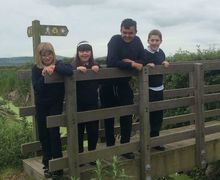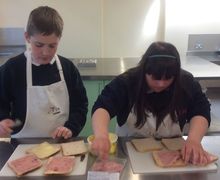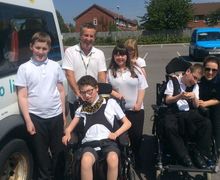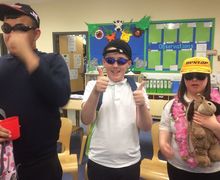Curriculum
We aim to provide meaningful and relevant learning experiences based on the Curriculum for Wales whilst recognising the specific needs of our pupils.
There are three distinct learning routes beyond Early Years provision through Ysgol Tir Morfa; Explorational, Functional and Supported.
Early Years provision comprises (typically) pupils of Nursery age to Year 2 who may ultimately follow any of our three curriculum routes dependent upon their needs upon reaching age seven (Year 3). Provision is centred on the six areas of learning and experience. Pupil Progress is assessed via Routes for Learning and Foundation Phase Profile as well as Individual learning journals.
Explorational Route provides for pupils working at the sensory-motor stage of child development – exploring their world through the senses and motor activities. Learners following the Explorational Route will typically leave school with their developmental journey recognised via the WJEC Entry Pathways Certificate or Diploma in Personal Progress.
Functional Route provides for pupils working at the pre-operational stage of child development – starting to make sense of the world, do not yet understand concrete logic, cannot mentally manipulate information, and are egocentric. Post-16 provision within the Functional Route allows pupils to develop their independence and life skills out in the community in real-life environments. Learners following the Functional Route will typically leave school with their developmental journey recognised via the WJEC Entry Pathways Certificate or Diploma in Personal Progress and the ASDAN Towards Independence Course.
Supported Route provides for pupils working at the concrete-operational stage of child development – beginning to think logically about concrete events, but still have difficulty understanding abstract or hypothetical concepts.
Four Core Purposes
The Curriculum for Wales four core purposes are at the heart of our curriculum. Each class have created maps which exemplify activities which promote the four core purposes, as in the example below.
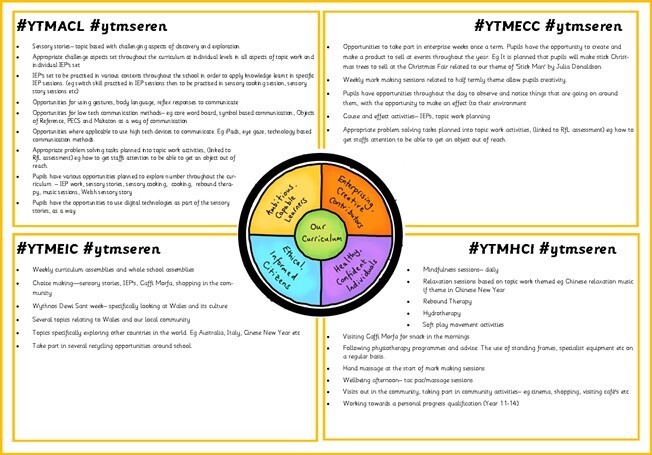
Teaching
At Ysgol Tir Morfa we aim to provide a high-quality learning environment based on excellent teaching which supports and inspires our learners to achieve their full potential. Our teaching is based on our understanding and knowledge of the individual needs and aspirations of our learners. All learners will have individual programmes related to their specific needs. A proportion of our learners will follow highly individualised programmes with input from a number of outside agencies. Opportunities to develop skills whilst exploring the local and extended communities of North Wales will be utilised as appropriate as we seek to prepare learners for their next steps after school, which can include moving on to local FE colleges, residential and day specialist colleges, care services, supported work placements, supported living, training schemes and full employment.
We constantly reflect upon, share and develop our teaching practices, based on our understanding of the 12 pedagogical principles set out in the Curriculum Framework and the practices we find to be successful in our school, specific to the needs of our learners.
The Principles for good teaching and learning are set our below:
- Focuses on the 4 purposes of the curriculum.
- Challenges pupils to sustain their efforts to reach high but achievable targets.
- Employs a broad repertoire of teaching approaches.
- Promotes problem solving, creative and critical thinking.
- Builds on previous knowledge and experience and engages pupils’ interest.
- Creates authentic contexts for learning.
- Employs assessment for learning principles.
- Makes connections within and across Areas of Learning and Experience.
- Reinforces Cross-curriculum responsibilities including literacy, numeracy and digital competence.
- Encourages pupils to take ownership of their own learning.
- Supports social and emotional development and positive relationships
- Encourages collaboration.
Planning
Planning at Ysgol Tir Morfa is based on providing our learners with holistic, engaging, broad and relevant learning experiences. Teachers plan on a half-termly topic-driven basis, ensuring coverage of the six areas of learning and experience using the topic web format shown below.
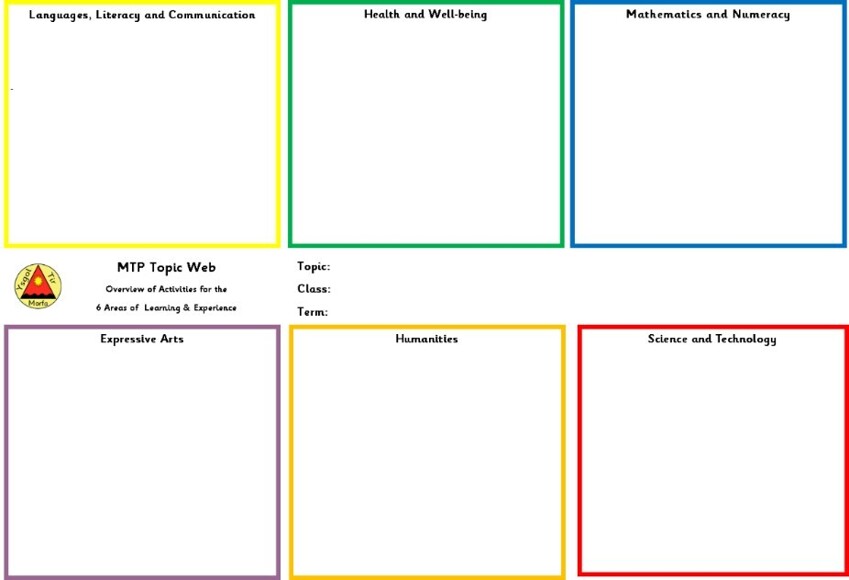
Cross Curricular Skills
Teachers will plan for the development of the following cross curricular skills within and across the Areas of Learning and Experience using the revised national frameworks:
- Literacy
- Numeracy
- Digital Competence
Cross-cutting themes
The five cross-cutting themes identified below will also be planned for and delivered across the curriculum. Weekly assemblies will also address these themes.
- Relationships and Sexuality Education (Discrete sessions with teachers and other professionals will also be delivered)
- Human Rights education and the United Nations Convention on the Rights of the Child (UNCRC
- Diversity
- Careers and work-related experience
- Local, National and International Context
We also plan (where appropriate) to ensure that our provision and teaching develops the integral skills below, which are essential for our learners to achieve the 4 purposes.
| Creativity and Innovation | Enquire, explore, be curious, create and share ideas. Link experiences, knowledge and skills. |
| Critical thinking and problem-solving | Question and evaluate information and situations. Identify problems and suggest solutions. Make decisions objectively. |
| Personal Effectiveness | Develop emotional intelligence, confidence and independence. Evaluate and discuss their current learning and mistakes, identifying areas for development. Reflect on and consider their own views and values, and their ethical, social, cultural and legal implications. |
| Planning and Organisation | Set goals for their learning and discuss and reflect on their progress. |
Mandatory elements of the curriculum
Teachers will also plan to secure the mandatory elements of the curriculum when planning. These are:
- Religion, values and ethics
- Relationships and Sexuality Education
- Welsh
- English
Progression
Some of our learners will be operating within the period of learning leading to Progression Step 1 which is referred to as the ‘Enabling Learning’ period. This period is seen as the gateway to the statements of what matters in the six areas of learning and experience (Areas) and the descriptions of learning at Progression step 1. It provides the firm foundation that all learners need to support development, at their own pace, towards realising the four purposes of the curriculum. Within the enabling learning period provision centres on five developmental pathways of:
- belonging
- communication
- exploration
- physical development
- well-being
For these learners Routes for Learning documents will be used to plan and monitor for progression. Learning journals are kept to chart pupil progress.
For learners operating within Progression step 1 and above, the ‘What Matters Statements’ for each area of learning and experience will be the basis of our planning for progression, depth and breadth of skills and knowledge and for learner progress. Planning documents will highlight the What Matters Statements coverage (Progression Steps 1 to 3)
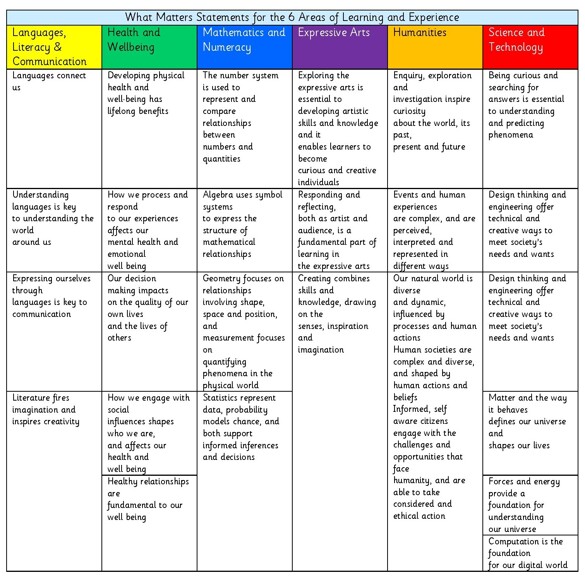
For these pupils progress will be tracked via:
- bSquared Connecting Steps
- Essential Skills Progress Maps
- Life and Work Skills Progress Map

